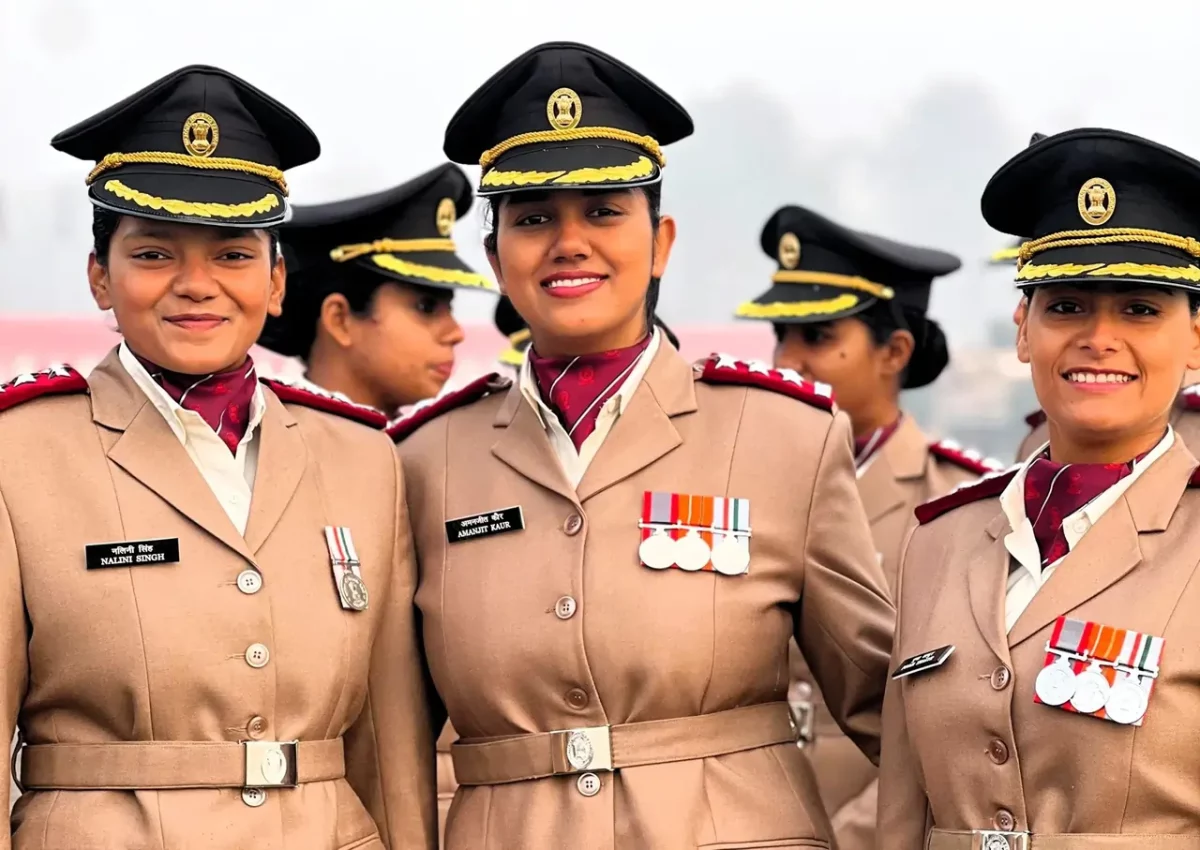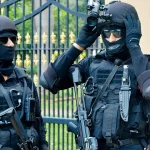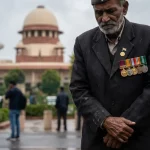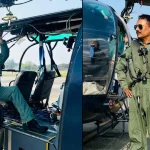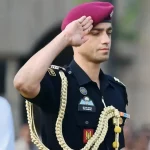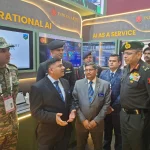Joining the Military Nursing Service (MNS) in India is an aspiring goal for many young women who are passionate about healthcare and wish to serve their nation in a meaningful way. The MNS not only offers a prestigious career but is also a gateway to unique experiences in the Armed Forces. For those considering this rewarding path, it is crucial to understand the eligibility criteria, selection process, and training that come with becoming a military nurse. In this comprehensive guide, we will delve into every facet of how to join the Military Nursing Service in India, ensuring you have all the information needed to succeed in this endeavor.
Historical Context
The roots of military nursing in India can be traced back to the 19th century when the British established the Indian Army Nursing Corps. Since its inception, nursing in the military has evolved, becoming an integral part of healthcare delivery in the Armed Forces. The MNS was formally established in 1888 to provide skilled nursing services to army personnel. Over the decades, it has played a vital role in not just treating the wounded and sick but also contributing to the general healthcare of service members. As of now, the MNS has become a sought-after service branch, symbolizing honor, resilience, and compassion.
Significance of the Military Nursing Service
Becoming a member of the MNS offers women an unparalleled opportunity to serve the nation. It is a profession rooted in care, empathy, and commitment to health. The MNS provides avenues for career advancement, specialization in various nursing fields, and opportunities to work both in India and abroad. Furthermore, military nurses often participate in humanitarian missions, disaster relief efforts, and war zones, showcasing the importance of their role beyond traditional hospital settings.
Eligibility Criteria for the MNS
Before embarking on the journey to join the MNS, candidates must ensure they meet specific eligibility criteria:
- Gender: Only female candidates can apply.
- Marital Status: Candidates must be unmarried, divorced, legally separated, or widowed without encumbrances.
- Nationality: Candidates must be Indian citizens.
- Age Limit: For the B.Sc Nursing entry, candidates should typically be born between October 1, 2000, and September 30, 2006. The age limit may vary slightly depending on the entry year.
- Educational Qualification: Successful completion of 10+2 (Class 12) with Physics, Chemistry, Biology, and English, achieving at least 50% aggregate marks.
- Physical Standards: Candidates must have a minimum height of 152 cm (with a relaxation to 147 cm for candidates from North Eastern states) and must meet medical fitness standards outlined by the Indian Army.
- Vision: The uncorrected vision criteria generally require candidates to have not more than 6/6 vision in one eye and 6/9 in the other for the 12th entry.
The Selection Process
The selection process for joining the MNS is comprehensive and consists of multiple stages designed to assess candidates’ physical and mental agility, along with relevant knowledge.
1. Application
The first step is to apply online through the official Indian Army website. Typically, applications are accepted twice a year, with the current windows generally opening around November and June.
2. Entrance Examination
Candidates seeking admission to the B.Sc Nursing program through the MNS need to qualify the NEET-UG exam, while those entering directly into the MNS must pass the written examination organized by the Indian Army. This examination will contain multiple-choice questions covering:
- General English
- Biology
- Physics
- Chemistry
- General Knowledge
- General Intelligence
Additionally, there is an 80-mark General Intelligence and English test alongside a Psychological Assessment Test (PAT) to evaluate candidates’ mental aptitude and reasoning skills.
3. Personal Interview
Candidates who pass the written tests will be called for a personal interview. This stage focuses on assessing technical knowledge, communication skills, and overall confidence. The interview panel generally consists of experienced military personnel and healthcare professionals.
4. Medical Examination
A rigorous medical examination follows, ensuring candidates meet the stringent physical standards of military service. This includes a thorough check-up, vision screening, and other medical evaluations to confirm candidates’ fitness for duty.
5. Training and Commissioning
Once selected, candidates will undergo basic and nursing training at designated Army hospitals and training institutions. Upon successful completion of this training program, candidates will be commissioned as Lieutenants in the Indian Army Nursing Services.
Entry Routes into the MNS
The MNS provides two primary entry routes for candidates:
- 12th Entry: This route allows candidates just after completing Class 12, subject to their NEET qualification, and requires them to meet the minimum score of 50% in the requisite subjects.
- B.Sc Nursing Direct Entry: This is for candidates who already possess a B.Sc Nursing degree and are looking for direct entry as commissioned officers.
Application Process and Fees
To apply for the MNS, candidates must navigate the online application system on joinindianarmy.nic.in. The application fee typically stands at ₹200, though it is waived for candidates belonging to the SC/ST categories. As part of the application, candidates will need to upload:
- Educational certificates
- Identity proofs
- Recent photographs
Key Dates and Important Details
- Online applications usually open twice a year, taking place around November and June.
- The written exam duration is generally 90 minutes.
- Age limits may vary depending on specific entry years but typically fall within the 17-25 years or 16.5-24 years range, depending on the entry type.
Statistical Data and Research Insights
Understanding the current landscape of nursing in the military reveals the significance of the MNS in India’s healthcare system. As of 2023, the Indian Army is witnessing a growing number of female officers, with military nursing emerging as a popular career choice. According to recent statistics, this trend is expected to continue, as more awareness and empowerment initiatives promote women in uniform. The recruitment numbers have also shown a steady increase, with around 200 vacancies being filled in the MNS annually.
Challenges and Solutions
Despite the prestige associated with a career in military nursing, several challenges persist:
- Workload and Stress: The demanding environment and workload can lead to burnout. Solutions involve better stress management resources, mental health support, and resilience training.
- Public Perception: Gender stereotypes can sometimes affect the perception of women in the military. Continued advocacy and visibility of successful female military nurses can help change these narratives.
- Balancing Careers and Personal Lives: Finding work-life balance is essential yet often challenging in military service. Programs aimed at flexible work hours or alternate assignments may assist in retaining talent.
Future Trends and Predictions
As the MNS evolves, some emerging trends are evident:
- Integration of Technology: Enhanced training utilizing simulation and technology will likely play a prominent role in nursing education within the military context.
- Increased Demand: With heightened focus on healthcare, the demand for military nurses is expected to increase, leading to more recruitment initiatives and career advancement opportunities.
- Global Collaboration: The MNS may explore international collaborations for training and deployment, broadening the experience of military nurses beyond national borders.
Conclusion
Joining the Military Nursing Service in India is not merely a career choice; it’s a profound commitment to serve and care for the nation’s heroes. The comprehensive selection process, rigorous training, and continuous opportunities for professional growth make it a rewarding profession for many women. For those aspiring to embark on this journey, understanding the eligibility criteria, the selection mechanism, and the dedicated application processes is crucial.
As future military nurses step into this critical role, they are not only enhancing their lives but also making significant contributions towards safeguarding the health of military personnel and their families. If you wish to take this noble path, focus on your education, prepare meticulously for the entrance tests, and strive for excellence in every phase of the selection process. The MNS awaits dedicated individuals ready to make a difference.

